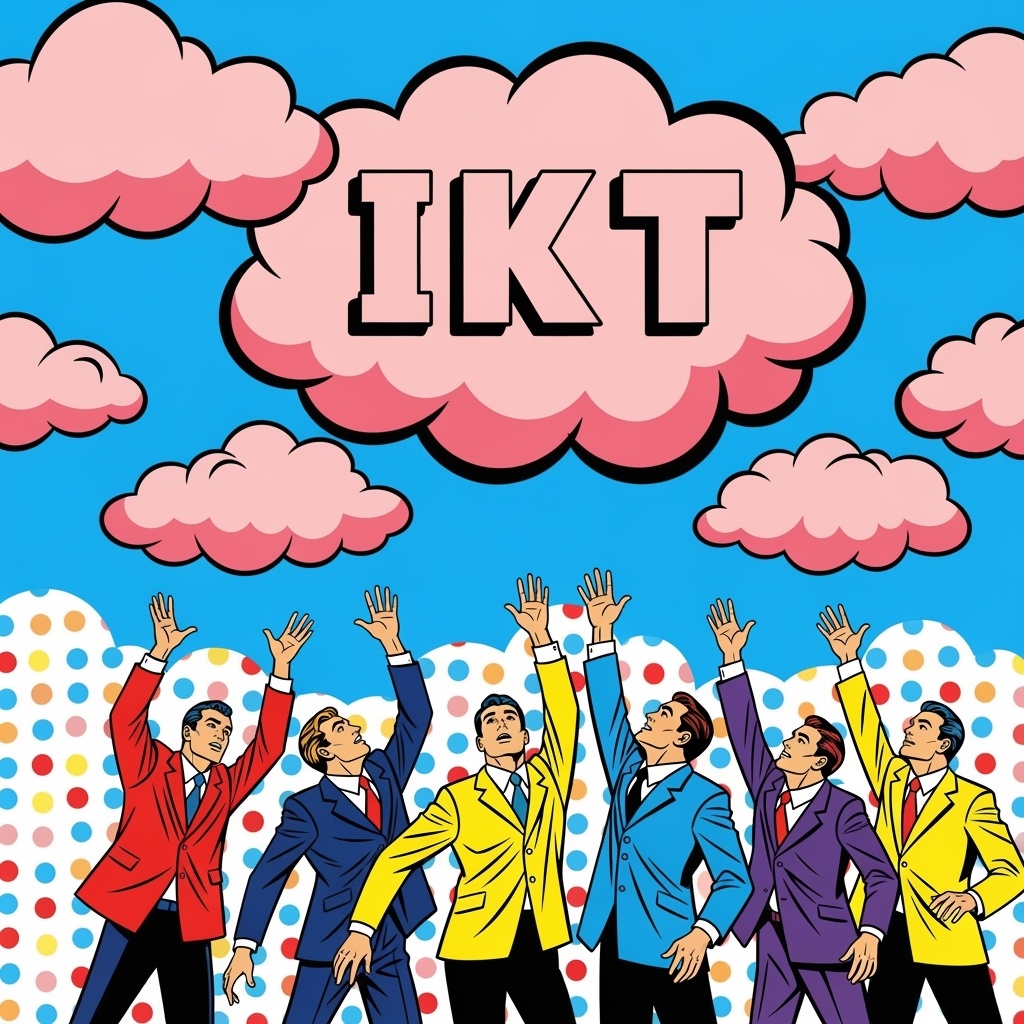-
 From Basic Tests to TLPT: DORA Redefines Resilience Testing Requirements
From Basic Tests to TLPT: DORA Redefines Resilience Testing Requirements
From basic testing to threat-led penetration testing—since January 2025, financial companies have been required to test their digital resilience in accordance with strict EU regulations. But what does this mean in concrete terms for testing programs, and who is affected by the demanding TLPTs?
-
 Threats, Incidents, and Attacks Under DORA – What Financial Companies Need to Know
Threats, Incidents, and Attacks Under DORA – What Financial Companies Need to Know
DORA clearly distinguishes between threats, incidents, and attacks—but what reporting obligations do they trigger? An overview of the new requirements.
-
 Contract Drafting in the Context of the DORA Regulation – What Do Financial Companies Need to Observe?
Contract Drafting in the Context of the DORA Regulation – What Do Financial Companies Need to Observe?
ICT contracts under DORA: Between minimum standards and power shifts. The regulation not only sets high requirements for digital resilience, but also changes the dynamics of contract negotiations. Financial companies must now enforce strict requirements—but which services actually fall under DORA, and how can exit strategies, audit rights, and risk management be regulated in a contractually watertight manner?
-
 New Implementation Guidance from BaFin on the Simplified ICT Risk Management Framework
New Implementation Guidance from BaFin on the Simplified ICT Risk Management Framework
DORA implementation: BaFin specifies requirements for simplified ICT risk management framework: BaFin provides financial companies with an overview of documentation, security measures, and processes for the simplified ICT framework, but emphasizes that the content must be tailored to each individual case in accordance with the principle of proportionality.
-
 News on Financial Entities as ICT Third-Party Service Providers and on Subcontracting under DORA
News on Financial Entities as ICT Third-Party Service Providers and on Subcontracting under DORA
The current draft of the lacking regulatory technical standards (RTS) for DORA still contains some ambiguities, particularly regarding the classification of financial entities as ICT third-party service providers. EIOPA has now issued interpretation notes to reduce these ambiguities. There has also been movement on the subject of RTS for subcontracting. An overview.
-
 Getting Ready for DORA (Part VII) – Which Financial Companies Benefit From the Simplified ICT Risk Management Framework?
Getting Ready for DORA (Part VII) – Which Financial Companies Benefit From the Simplified ICT Risk Management Framework?
From January 2025, DORA will introduce uniform requirements for ICT security, but exceptions for smaller financial institutions will provide a degree of relief. Nevertheless, differences between EU member states will remain due to national implementation leeway.
-
 Getting Ready for DORA (Part VI) – Only a Financial Company or Already ICT Third-party Service Provider?
Getting Ready for DORA (Part VI) – Only a Financial Company or Already ICT Third-party Service Provider?
DORA places new demands on the digital resilience of financial companies, while the distinction between financial and ICT services raises questions in detail. Clear principles for interpreting the regulations are urgently needed to create legal certainty for the industry.
-
 Getting Ready for DORA (Part V) – Contract Negotiations After DORA Comes Into Force – Who Will Have the Upper Hand?
Getting Ready for DORA (Part V) – Contract Negotiations After DORA Comes Into Force – Who Will Have the Upper Hand?
The DORA significantly restricts the contractual freedom of financial companies and ICT third-party service providers by imposing a number of mandatory requirements on the drafting of contracts. This could put medium-sized financial companies in particular in a stronger negotiating position, while even large ICT providers will be obliged to implement the new requirements.
-
 Getting Ready for DORA (Part IV) – Are Agreements on Audit Rights also Mandatory Outside of Outsourcing Agreements?
Getting Ready for DORA (Part IV) – Are Agreements on Audit Rights also Mandatory Outside of Outsourcing Agreements?
DORA obliges financial institutions to manage the ICT third-party risk through appropriate contract design. To this end, DORA specifies minimum content that is intended to strengthen the position of the financial institution and increase security. But what consequences does this have for future and existing contracts?
-
 Getting Ready for DORA (Part I) –High Impact on Small Companies in the Financial Sector?
Getting Ready for DORA (Part I) –High Impact on Small Companies in the Financial Sector?
DORA imposes a number of new obligations on financial companies. This can be particularly burdensome for small companies. But who actually falls within the scope of the regulation and are the rules the same for everyone affected?
 From Basic Tests to TLPT: DORA Redefines Resilience Testing Requirements
From basic testing to threat-led penetration testing—since January 2025, financial companies have been required to test their digital resilience in accordance with strict EU regulations. But what does this mean in concrete terms for testing programs, and who is affected by the demanding TLPTs?
From Basic Tests to TLPT: DORA Redefines Resilience Testing Requirements
From basic testing to threat-led penetration testing—since January 2025, financial companies have been required to test their digital resilience in accordance with strict EU regulations. But what does this mean in concrete terms for testing programs, and who is affected by the demanding TLPTs? Threats, Incidents, and Attacks Under DORA – What Financial Companies Need to Know
DORA clearly distinguishes between threats, incidents, and attacks—but what reporting obligations do they trigger? An overview of the new requirements.
Threats, Incidents, and Attacks Under DORA – What Financial Companies Need to Know
DORA clearly distinguishes between threats, incidents, and attacks—but what reporting obligations do they trigger? An overview of the new requirements. Contract Drafting in the Context of the DORA Regulation – What Do Financial Companies Need to Observe?
ICT contracts under DORA: Between minimum standards and power shifts. The regulation not only sets high requirements for digital resilience, but also changes the dynamics of contract negotiations. Financial companies must now enforce strict requirements—but which services actually fall under DORA, and how can exit strategies, audit rights, and risk management be regulated in a contractually watertight manner?
Contract Drafting in the Context of the DORA Regulation – What Do Financial Companies Need to Observe?
ICT contracts under DORA: Between minimum standards and power shifts. The regulation not only sets high requirements for digital resilience, but also changes the dynamics of contract negotiations. Financial companies must now enforce strict requirements—but which services actually fall under DORA, and how can exit strategies, audit rights, and risk management be regulated in a contractually watertight manner? New Implementation Guidance from BaFin on the Simplified ICT Risk Management Framework
DORA implementation: BaFin specifies requirements for simplified ICT risk management framework: BaFin provides financial companies with an overview of documentation, security measures, and processes for the simplified ICT framework, but emphasizes that the content must be tailored to each individual case in accordance with the principle of proportionality.
New Implementation Guidance from BaFin on the Simplified ICT Risk Management Framework
DORA implementation: BaFin specifies requirements for simplified ICT risk management framework: BaFin provides financial companies with an overview of documentation, security measures, and processes for the simplified ICT framework, but emphasizes that the content must be tailored to each individual case in accordance with the principle of proportionality. News on Financial Entities as ICT Third-Party Service Providers and on Subcontracting under DORA
The current draft of the lacking regulatory technical standards (RTS) for DORA still contains some ambiguities, particularly regarding the classification of financial entities as ICT third-party service providers. EIOPA has now issued interpretation notes to reduce these ambiguities. There has also been movement on the subject of RTS for subcontracting. An overview.
News on Financial Entities as ICT Third-Party Service Providers and on Subcontracting under DORA
The current draft of the lacking regulatory technical standards (RTS) for DORA still contains some ambiguities, particularly regarding the classification of financial entities as ICT third-party service providers. EIOPA has now issued interpretation notes to reduce these ambiguities. There has also been movement on the subject of RTS for subcontracting. An overview. Getting Ready for DORA (Part VII) – Which Financial Companies Benefit From the Simplified ICT Risk Management Framework?
From January 2025, DORA will introduce uniform requirements for ICT security, but exceptions for smaller financial institutions will provide a degree of relief. Nevertheless, differences between EU member states will remain due to national implementation leeway.
Getting Ready for DORA (Part VII) – Which Financial Companies Benefit From the Simplified ICT Risk Management Framework?
From January 2025, DORA will introduce uniform requirements for ICT security, but exceptions for smaller financial institutions will provide a degree of relief. Nevertheless, differences between EU member states will remain due to national implementation leeway. Getting Ready for DORA (Part VI) – Only a Financial Company or Already ICT Third-party Service Provider?
DORA places new demands on the digital resilience of financial companies, while the distinction between financial and ICT services raises questions in detail. Clear principles for interpreting the regulations are urgently needed to create legal certainty for the industry.
Getting Ready for DORA (Part VI) – Only a Financial Company or Already ICT Third-party Service Provider?
DORA places new demands on the digital resilience of financial companies, while the distinction between financial and ICT services raises questions in detail. Clear principles for interpreting the regulations are urgently needed to create legal certainty for the industry. Getting Ready for DORA (Part V) – Contract Negotiations After DORA Comes Into Force – Who Will Have the Upper Hand?
The DORA significantly restricts the contractual freedom of financial companies and ICT third-party service providers by imposing a number of mandatory requirements on the drafting of contracts. This could put medium-sized financial companies in particular in a stronger negotiating position, while even large ICT providers will be obliged to implement the new requirements.
Getting Ready for DORA (Part V) – Contract Negotiations After DORA Comes Into Force – Who Will Have the Upper Hand?
The DORA significantly restricts the contractual freedom of financial companies and ICT third-party service providers by imposing a number of mandatory requirements on the drafting of contracts. This could put medium-sized financial companies in particular in a stronger negotiating position, while even large ICT providers will be obliged to implement the new requirements. Getting Ready for DORA (Part IV) – Are Agreements on Audit Rights also Mandatory Outside of Outsourcing Agreements?
DORA obliges financial institutions to manage the ICT third-party risk through appropriate contract design. To this end, DORA specifies minimum content that is intended to strengthen the position of the financial institution and increase security. But what consequences does this have for future and existing contracts?
Getting Ready for DORA (Part IV) – Are Agreements on Audit Rights also Mandatory Outside of Outsourcing Agreements?
DORA obliges financial institutions to manage the ICT third-party risk through appropriate contract design. To this end, DORA specifies minimum content that is intended to strengthen the position of the financial institution and increase security. But what consequences does this have for future and existing contracts? Getting Ready for DORA (Part I) –High Impact on Small Companies in the Financial Sector?
DORA imposes a number of new obligations on financial companies. This can be particularly burdensome for small companies. But who actually falls within the scope of the regulation and are the rules the same for everyone affected?
Getting Ready for DORA (Part I) –High Impact on Small Companies in the Financial Sector?
DORA imposes a number of new obligations on financial companies. This can be particularly burdensome for small companies. But who actually falls within the scope of the regulation and are the rules the same for everyone affected?


